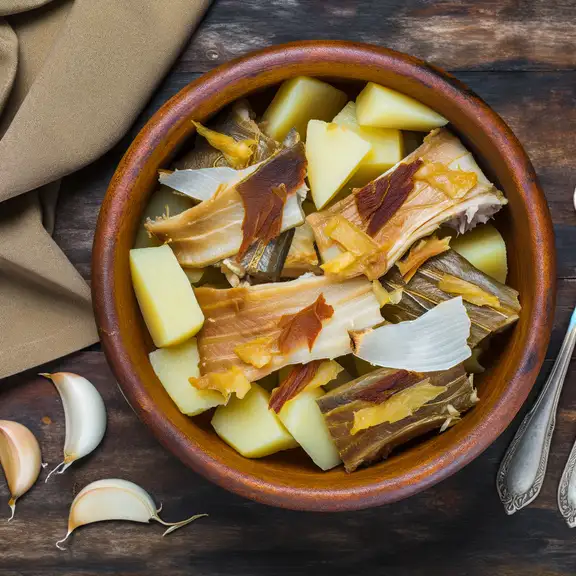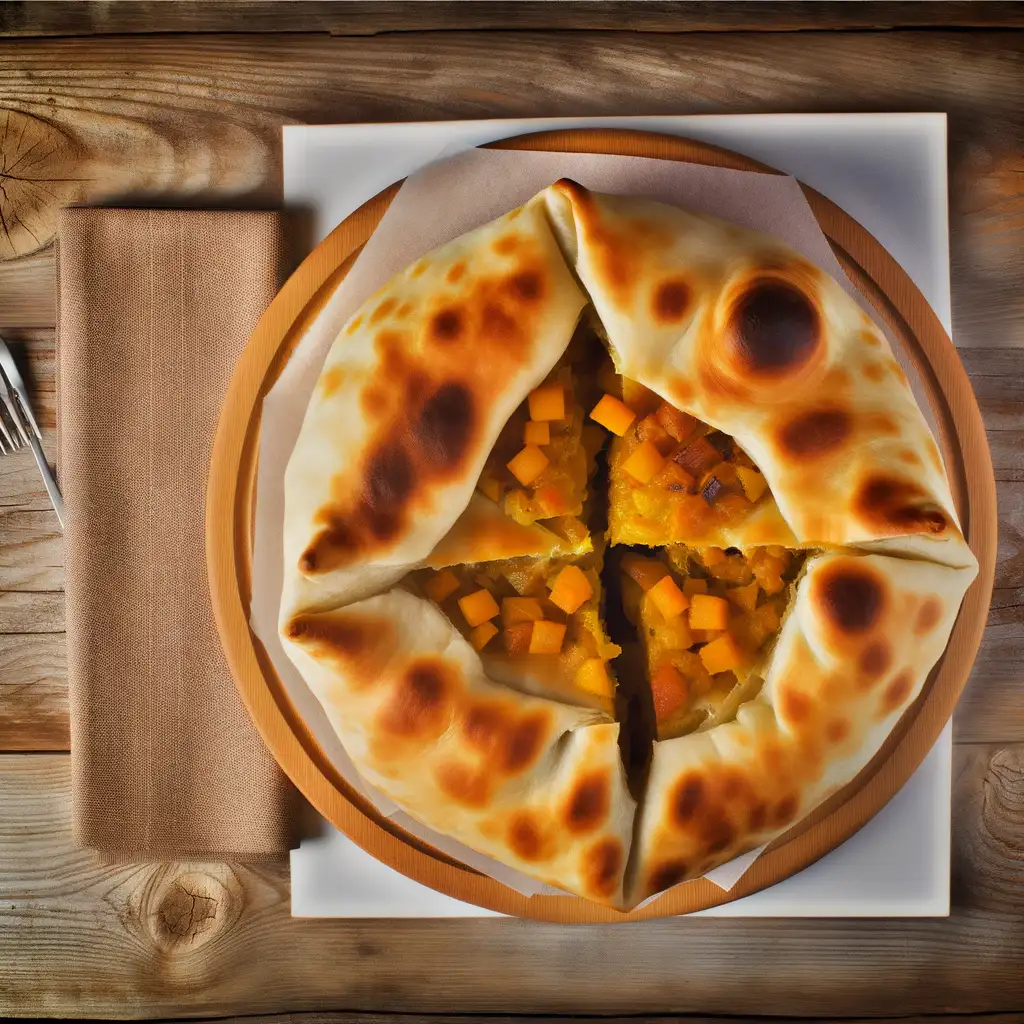



If you ever find yourself craving a place where nature’s grandeur meets a cozy,laid-back vibe,Kolašin in Montenegro should be at the top of your list. Imagine waking up to crisp mountain air,the scent of pine trees mingling with fresh coffee from a nearby café. The town feels like a warm embrace—small enough to wander without a plan,yet full of life and stories waiting around every corner. You’ll hear the gentle rush of the Tara River nearby,a soothing soundtrack that blends perfectly with the chatter of locals and the occasional clink of glasses in a rustic tavern. Kolašin’s charm lies in its balance between adventure and relaxation. By day,you can hike through lush forests or ski down powdery slopes,feeling the thrill of untouched landscapes. By evening,the town’s character shines through in its friendly faces and hearty mountain cuisine—think rich stews,fresh bread,and locally made cheeses that taste like the land itself. Sitting outside a small restaurant,watching the sunset paint the peaks in shades of gold and purple,you’ll feel a deep connection to this place’s quiet strength. What really makes Kolašin special is its genuine warmth. It’s not just the stunning scenery but the way the town invites you to slow down,breathe deeply,and savor moments that often slip by in bigger cities. Whether you’re sharing stories with a local over a glass of rakija or simply soaking in the peaceful surroundings,Kolašin leaves you with a sense of belonging and a longing to return.
The information on this page is currently being reviewed by Tripkliq and should be used as a guide only
Eng word: Hello
Eng pronunciation: Zdra-vo
Local language: Zdravo
Eng word: Goodbye
Eng pronunciation: Do-vee-jen-ya
Local language: Doviđenja
Eng word: Thank you
Eng pronunciation: Hvah-lah
Local language: Hvala
Eng word: How much
Eng pronunciation: Ko-lee-ko
Local language: Koliko
Eng word: Toilet
Eng pronunciation: Toh-ah-let
Local language: Toalet
Eng word: Help me
Eng pronunciation: Po-mo-zee mee
Local language: Pomozi mi
Eng word: Yes
Eng pronunciation: Dah
Local language: Da
Eng word: No
Eng pronunciation: Neh
Local language: Ne
Eng word: Excuse me
Eng pronunciation: Eez-vee-nee-teh
Local language: Izvinite
Kolašin was established in the 17th century during the Ottoman Empire's rule, serving as a strategic settlement in the region. Its rich history makes it a fascinating destination for history enthusiasts.
The Kolašin Monastery, built in the 19th century, is a significant cultural and religious landmark. It showcases traditional Montenegrin architecture and offers visitors a glimpse into the region's spiritual heritage.
Kolašin played an important role during the Balkan Wars in the early 20th century, serving as a key location for Montenegrin forces. Its historical significance during this period is commemorated by local monuments.
Kolašin is known for its well-preserved traditional Montenegrin architecture, including stone houses and wooden structures that reflect the region's cultural heritage.
In the 20th century, Kolašin transformed into a popular mountain resort, attracting tourists with its stunning natural beauty and outdoor activities, such as skiing and hiking.
The Morača River, which flows near Kolašin, has been a vital part of the city's history, providing resources and inspiring local folklore. Visitors can enjoy its scenic beauty and learn about its cultural significance.
During World War II, Kolašin was a center of resistance against occupying forces. The bravery of its residents is remembered as a proud chapter in the city's history.
Kolašin is renowned for preserving traditional crafts, such as weaving and wood carving. Tourists can explore local workshops and purchase handmade souvenirs that reflect the city's cultural identity.
Kolašin serves as a gateway to Biogradska Gora National Park, one of Europe's last remaining primeval forests. The park's rich biodiversity and historical significance make it a must-visit destination.
In Kolašin, the most common Power Adaptor is Type C, Type F.



Cabbage rolls stuffed with minced meat and rice, slow-cooked in a savory tomato sauce.

A traditional cod dish, usually prepared with potatoes and served during festive occasions.

A flaky pastry filled with various ingredients, such as cheese, pumpkin, or potatoes, often enjoyed as a snack or appetizer.

A hearty dish made from cornmeal, often served with cheese and sour cream, perfect for the mountainous region.

Freshly caught trout from the nearby rivers, typically grilled and served with local herbs and lemon.

A traditional smoked ham from the nearby Njeguši village, known for its rich flavor and delicate texture.
If you ever find yourself wandering through the sun-drenched streets of Dubrovnik,you’ll immediately feel like you’ve stepped into a living storybook. The city’s ancient stone walls rise proudly against the sparkling Adriatic,and as you stroll along the marble-paved Stradun,the salty sea breeze mingles with the scent of fresh pine and blooming bougainvillea. There’s a rhythm here—a gentle hum of life where history and modern charm dance together effortlessly.
Dubrovnik’s character is woven into every corner:the clatter of café cups,the murmur of locals chatting in cozy taverns,and the distant call of seagulls overhead. You can almost taste the city in the air—briny and fresh,with hints of grilled seafood and ripe figs from the markets. Sitting at a seaside restaurant,watching the sun dip behind the fortress walls,you’ll savor dishes bursting with Mediterranean flavors,paired with a glass of crisp Croatian white wine.
What makes Dubrovnik truly special is how it balances its rich past with a vibrant present. The city’s narrow alleys invite exploration,revealing tucked-away galleries,artisan shops,and lively squares where music spills out into the streets. Whether you’re tracing the footsteps of ancient mariners or simply soaking up the golden light on a quiet terrace,Dubrovnik feels like a warm embrace—inviting,timeless,and utterly unforgettable.
If you ever find yourself wandering the Adriatic coast,Kotor is the kind of place that wraps around you like a warm,familiar hug. Nestled beneath towering limestone cliffs and cradled by the shimmering Bay of Kotor,this medieval town hums with a quiet energy that feels both timeless and alive. As you stroll through its labyrinth of narrow cobblestone streets,you’ll catch the scent of fresh sea salt mingling with the earthy aroma of old stone and blooming jasmine. The sound of church bells ringing softly blends with the distant chatter of locals and the gentle lapping of waves against ancient walls.
Kotor’s charm lies in its layers—each corner reveals a story,from the faded frescoes inside centuries-old churches to the vibrant markets where vendors call out,offering ripe figs,olives,and freshly caught seafood. The city’s Venetian architecture,with its weathered facades and ornate balconies,whispers tales of a rich past,while cozy cafes spill out onto sun-dappled squares,inviting you to sip strong Montenegrin coffee or a glass of local wine.
What really stays with you is the feeling of being somewhere that’s both peaceful and full of life. Whether you’re climbing the fortress walls for a breathtaking view of the bay or simply watching the sunset paint the water in shades of gold and pink,Kotor has a way of making you slow down and soak it all in. It’s a place that lingers in your heart long after you’ve left.
If you ever find yourself wandering through Split,it’s like stepping into a living,breathing storybook where ancient history and vibrant modern life dance together effortlessly. The moment you stroll along the Riva promenade,the salty breeze from the Adriatic mingles with the aroma of fresh espresso and grilled seafood wafting from nearby cafés. Locals chat animatedly in the sun-dappled squares,their laughter blending with the distant hum of boats bobbing gently in the harbor. There’s a laid-back energy here that feels both timeless and alive,inviting you to slow down and soak it all in.
Split’s heart beats strongest in Diocletian’s Palace,a sprawling Roman fortress that’s less a museum and more a neighborhood where people live,shop,and gather. Walking through its ancient stone alleys,you’ll catch glimpses of colorful markets,artisan shops,and cozy taverns tucked into centuries-old walls. At night,the city transforms as lanterns flicker on,and the sound of live klapa singing—traditional a cappella harmonies—drifts through the air,wrapping you in a warm,soulful embrace.
What really makes Split unforgettable is how effortlessly it blends the old with the new. You can savor a plate of fresh octopus salad while watching fishermen haul in their catch,then wander to a rooftop bar for a cocktail as the sun sets behind the islands. It’s a place where every corner tells a story,every meal feels like a celebration,and every moment invites you to become part of its ongoing tale.
If you ever find yourself wandering the Adriatic coast,Tivat in Montenegro is a place that quietly steals your heart without shouting for attention. The moment you step into this coastal town,there’s a gentle hum of life—boats softly clinking against the marina docks,the salty breeze carrying hints of pine and sea,and the distant laughter spilling from waterfront cafés. It’s a place where the pace slows just enough for you to savor the moment,whether you’re sipping a rich espresso or watching the sun melt into the bay’s calm waters.
Tivat’s charm lies in its blend of old-world Mediterranean warmth and a fresh,modern pulse. The town’s compact center invites you to wander through narrow streets lined with pastel buildings,their shutters flung open to catch the light. You’ll catch the scent of freshly baked bread mingling with the aroma of grilled seafood,a reminder that here,food is a celebration of the sea and the land. Locals greet you with genuine smiles,and there’s a sense of community that makes you feel like you’re stepping into a place that’s lived in and loved.
What really sets Tivat apart is its connection to the water. Whether you’re strolling along the marina,watching sleek yachts glide by,or exploring nearby beaches where the water is impossibly clear and cool,there’s a peacefulness that wraps around you. It’s a city that invites you to slow down,breathe deeply,and soak in the simple pleasures—sunlight,sea,and the warmth of genuine hospitality.
If you ever find yourself wandering the Dalmatian coast,Zadar is one of those places that sneaks up on you with its quiet charm and unexpected magic. The moment you step onto its ancient stone streets,there’s this warm,timeless feeling—like the city is gently humming a tune just for you. The salty breeze from the Adriatic mingles with the scent of fresh pine and blooming jasmine,wrapping around you as you stroll along the waterfront. It’s a place where history isn’t just in museums; it’s alive in the crumbling Roman ruins,the medieval churches,and the lively squares where locals gather to chat and sip coffee.
What really sets Zadar apart is its playful spirit. You’ll hear it in the waves as they dance through the Sea Organ,an extraordinary installation that turns the sea’s movement into haunting melodies. And just a few steps away,the Sun Salutation lights up the night with a mesmerizing display of colors,making the waterfront feel like a celebration of nature and art. Grab a seat on the stone benches,watch the sun dip below the horizon,and you’ll understand why Alfred Hitchcock once called Zadar the most beautiful sunset in the world.
The city’s vibe is relaxed but vibrant,with cozy konobas serving up fresh seafood and local wines that taste like the essence of the region. Whether you’re wandering through the bustling market,exploring narrow alleys,or simply soaking in the views from a café terrace,Zadar invites you to slow down,breathe deeply,and savor every moment.
If you ever find yourself craving a place where the sea breeze carries stories of ancient times and the sun paints the sky in shades of coral and gold,Sarandë is where you want to be. This coastal town in southern Albania has a laid-back charm that instantly wraps around you like a warm,familiar blanket. Walking along the promenade,you’ll hear the gentle lapping of the Ionian waves mingling with the laughter of locals and the clinking of glasses from seaside cafes. The scent of fresh grilled seafood and sweet citrus from nearby orchards fills the air,inviting you to slow down and savor the moment.
Sarandë’s character is a beautiful blend of old and new. The town’s pastel-colored buildings climb the hillsides,overlooking crystal-clear waters that shimmer under the Mediterranean sun. You can explore ancient ruins just a short drive away,like the mesmerizing Butrint archaeological site,where history feels alive beneath your feet. But what really makes Sarandë special is its rhythm—the easy pace of life,the genuine smiles of the people,and the way evenings come alive with music and chatter in cozy taverns.
Whether you’re sipping a glass of local wine while watching the sunset or wandering through bustling markets filled with vibrant fruits and handmade crafts,Sarandë invites you to experience a side of Albania that’s both timeless and refreshingly real. It’s a place where every moment feels like a warm embrace from the Mediterranean itself.
Fake listings for apartments or hotels may be advertised online, requiring payment upfront but not delivering the promised stay.
Tourists may be offered unfavorable exchange rates or counterfeit currency at unofficial exchange points.
Individuals posing as tour guides may offer services but provide little value or incorrect information about attractions.
Some taxi drivers may overcharge tourists by not using the meter or quoting inflated prices for short distances.
Unauthorized individuals may charge tourists for parking in free or public spaces, claiming to be official attendants.
Certain restaurants may add extra items or hidden fees to the bill, especially if they sense the customer is unfamiliar with local pricing.
Some shops may inflate prices for souvenirs or local goods, targeting tourists who are unaware of standard costs.
The possession, use, and distribution of drugs are strictly illegal in Montenegro, including in Kolašin. This applies to both recreational and hard drugs. Penalties for drug-related offenses can be severe, including fines and imprisonment. Tourists should avoid any involvement with illegal substances to stay within the law.
In Kolašin, Montenegro, smoking is regulated under national laws. Smoking is prohibited in enclosed public spaces, workplaces, and public transport. However, designated smoking areas may be available in some establishments, such as bars and restaurants. Tourists should look for 'No Smoking' signs and adhere to local regulations to avoid fines.
Vaping is not as strictly regulated as smoking in Montenegro, including in Kolašin. However, it is generally treated similarly to smoking in terms of restrictions. Vaping is likely prohibited in enclosed public spaces and public transport. Tourists are advised to follow the same rules as for smoking and be mindful of local customs and signage.
What are other people saying about Kolašin?
Recent Social posts about Kolašin
There is nothing to show you for now.